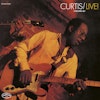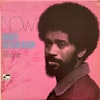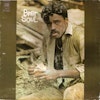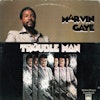There is a delicate, haunting magic in Curtis Mayfield’s Curtis/Live! that remains as powerful today as it was fifty years ago. Unlike most live albums, which seek to awe the listener with the volume and power of a live band, Curtis/Live! sneaks up, pulls gently on your sleeve, and whispers truths so deep and harrowing and beautiful, they leave you changed.
Everything about the album, from the performance, to the track listing, down to the choice of the Bitter End as its venue, is as brilliant and idiosyncratic as the man who made it. Mayfield could have put on a high-octane soul revue at the Apollo—he and the Impressions had been fan favorites at the Apollo since 1957, and he was nearing the height of his popularity as a mainstream artist (the peak came with 1972’s Super Fly). With the success of his first solo album, the monumental Curtis, he was leading the way forward for soul music in the 1970s, and he had a new band that could enhance the explosive funk of his recent music.
But that was never his bag. Even at his funkiest, he was best when he had you listening, not dancing. So he took his band to the Bitter End, a matchbox-sized room in Greenwich Village, which gives the album an intense intimacy, almost like sitting next to Mayfield while he performs in his living room.
This purposeful smallness, this calculated pulling back, forces the listener to lean in, which amplifies the power of Mayfield’s message. In the first three songs—“Mighty Mighty (Spade & Whitey),” “I Plan to Stay a Believer,” and “We’re a Winner”—Mayfield sings about the White and Black Power movements, the Native American civil rights movement, the apocalypse, and the assassinations of Martin Luther King and Robert Kennedy, while bringing the slurs “spade” and “ofay” into the pop lexicon. As the album progresses, older cuts like “People Get Ready” and “Gypsy Woman” call to mind the days when hope in the movement was high, while newer songs like “(Don’t Worry) If There’s a Hell Below We’re All Going to Go” and “We the People Who Are Darker Than Blue” vent the bitter collapse of that hope. Meanwhile, a show-stopping version of “The Makings of You” soothes the wounds with love.
But the heart of the album, the emblem of its emotional depth and meaning, is a medley featuring a dazzling cover of the Carpenters’ “We’ve Only Just Begun,” which modifies into an equally stunning “People Get Ready.” At first, it seems odd that Mayfield would cover a sentimental love song by a white fluff-pop duo. He even admits this to his audience. But the intensity of his reading of the song hints at something deeper. When the band segues into “People Get Ready,” it seems the Carpenters were just the preamble, and that Mayfield repurposed their little newlyweds’ song into another one of his signature civil rights anthems. After all, what are lyrics like “We’ve only just begun to live…so many roads to choose, we start off walking and learn to run” if not a rephrasing of Mayfield’s exhortations to “move on up,” “keep on pushing,” and “get ready for the train a-coming?” It is a beautiful trick, one only Mayfield could have played, a layering of meaning that hits harder for how good it sounds, how gorgeous and lilting his guitar, how nuanced and breathtaking his voice, how fine and understated his band.
At the album’s end, as the last notes ring out and Mayfield exits the stage, a man in the crowd shouts, “Hell no!” And that is another part of the magic of Curtis/Live! Mayfield’s audience didn’t just love these songs; it needed them. More than any artist of his era, he achieved mainstream success while telling America the brutal truth about itself. His audience had grown to expect it from him, and to love him for it. He was more than a singer, more than an entertainer. Like his grandmother, he was a preacher, a leader, a healer. He used the sugar of music to coat the bitter pill of reality. He called it “painless preaching.”
When the band comes back for an encore of “Stone Junkie,” a wry song about addiction Mayfield had recently written on a donut binge, the magic is fully revealed. Toward the end of the song, the band cuts out and the crowd takes up the chorus, clapping the rhythm, singing in three-part harmony, and shouting in ecstasy. Mayfield has given them spiritual release, a cleansing of the soul. As a listener, you would do anything to be in that room. That magic feeling—the ecstatic power of music—is hard to create and nearly impossible to capture. Curtis/Live! did both. That’s why it spent thirty-eight weeks on the charts after its release in May 1971, and that’s why fifty years later it remains vital, healing, and true.



